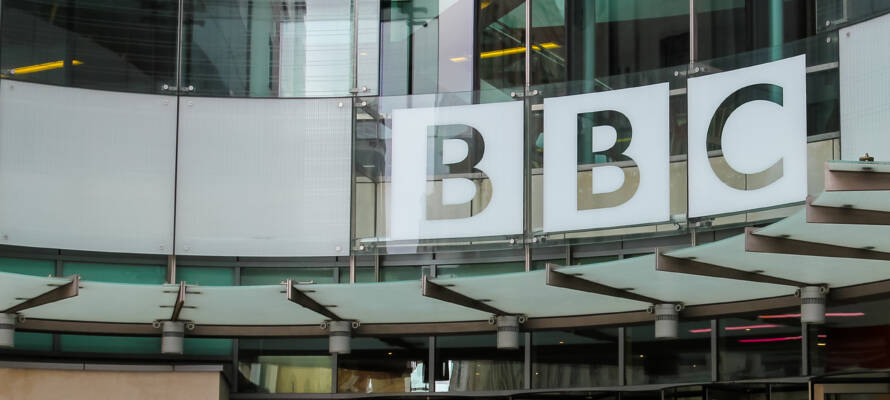‘We are certain that were similar incidents to occur at the expense of any other minority, the BBC would show zero tolerance,’ the signatories write.
By Ben Rappaport, United with Israel and David Isaac, JNS
A group of over 200 staff and freelancers associated with the BBC have published a letter to the BBC board, citing concerns of antisemitic bias at the news outlet, Jewish News reported.
In the letter, the “208 BBC staff, contractors, suppliers and contributors from across the television and film industries, the majority of whom are Jewish,” expressed “anguish and disbelief” that complaints about BBC coverage related to the Israel-Hamas war have not been addressed.
“We all work in the film and broadcast industries. But we are also members of the wider British Jewish community and can vouch with certainty that there is a loss of faith in the BBC within our community and a widespread opinion that, when it comes to racism and discrimination at the BBC, ‘Jews don’t count’,” the letter reads.
“By contrast, we are certain that were similar incidents to occur at the expense of any other minority, the BBC would show zero tolerance,” the letter continues. “And with this volume of incidents as documented in our three attachments, they would certainly be worried they might have a serious, institutional racism problem.”
“We write to you today to request an urgent formal investigation by the BBC Board into systemic problems of antisemitism and bias at the BBC, alongside senior management’s demonstrable failure to properly address the issue.”
The letter includes examples the signatories say breach BBC social media guidelines, as well as posts by Match Of The Day presenter Gary Lineker, a previous The Apprentice contestant, and BBC Arabic staff.
Signatories to the letter include Fulwell 73 managing partner Leo Pearlman, former BBC One controller turned Telegraph columnist Danny Cohen, and former ITV executive Claudia Rosencrantz.
According to Jewish News, a BBC spokeswoman said that the BBC Chairman had responded to the letter directly.
“It is a great concern to us if anyone does not feel supported at work and we have well-established and robust processes in place to handle any concerns or complaints raised with us confidentially. We have highlighted these to the signatories of the letter. As an organization, we stand united against any form of abuse, prejudice or intolerance.”
“Editorially, we are committed to the highest standards of impartiality in our journalism and in a small number of cases where there have been mistakes we have acknowledged this. Where staff conduct has fallen below expectations, we have taken action,” the spokeswoman said.
In May, Cohen slammed anti-Israel bias at the BBC in a Telegraph article, noting that since Oct. 7, BBC Arabic “has been forced to make 80 corrections to its reporting,” including a report questioning whether the massacre at Kibbutz Kfar Aza even took place.
“How was a video of that nature produced and distributed by the BBC in the first place? How is it possible that editorial standards at BBC Arabic had fallen so low that this was seen as legitimate reporting?” Cohen asked.
Other examples he provided included a BBC Arabic presenter who asked an Egyptian guest to apologize for sympathizing with Israel and a BBC Arabic journalist who neglected to ask an Arab woman “about the time she stabbed an Israeli neighbor in front of her children.”
Another BBC Arabic correspondent “liked” tweets calling the Oct. 7 massacre “a morning of hope.”
Shortly after Oct. 7, the BBC said it was “urgently investigating” six reporters and a freelancer following complaints of anti-Israel posts on social media brought to its attention by media watchdog group CAMERA.
While the BBC employs people “who celebrated the worst massacre of Jewish people since the Holocaust,” it makes the scandal far worse by not dealing seriously with the problem, Cohen wrote.
The BBC has even praised its Arabic service with Director-General Tim Davie describing it as something “we should be very proud of.”
Cohen pointed out that Davie, ironically, when taking on his role, made “impartiality,” which is one of five “public purposes” of the BBC, his “number one priority.”
“[I]t now seems clear that, unfortunately, he has failed in his mission in the most shameful way possible,” Cohen wrote.
The BBC has for 20 years suppressed the “Balen Report,” a 20,000-word document commissioned in 2004 and written by senior broadcast journalist Malcolm Balen. The document looked at hundreds of hours of BBC coverage of the Israel-Arab conflict.
Elements that have leaked make it clear that Balen concluded BBC coverage was biased. But only a select few have seen the full report. The BBC has spent hundreds of thousands of pounds in court to keep it from going public.
Do You Love Israel? Make a Donation - Show Your Support!
Donate to vital charities that help protect Israeli citizens and inspire millions around the world to support Israel too!
Now more than ever, Israel needs your help to fight and win the war -- including on the battlefield of public opinion.
Antisemitism, anti-Israel bias and boycotts are out of control. Israel's enemies are inciting terror and violence against innocent Israelis and Jews around the world. Help us fight back!



